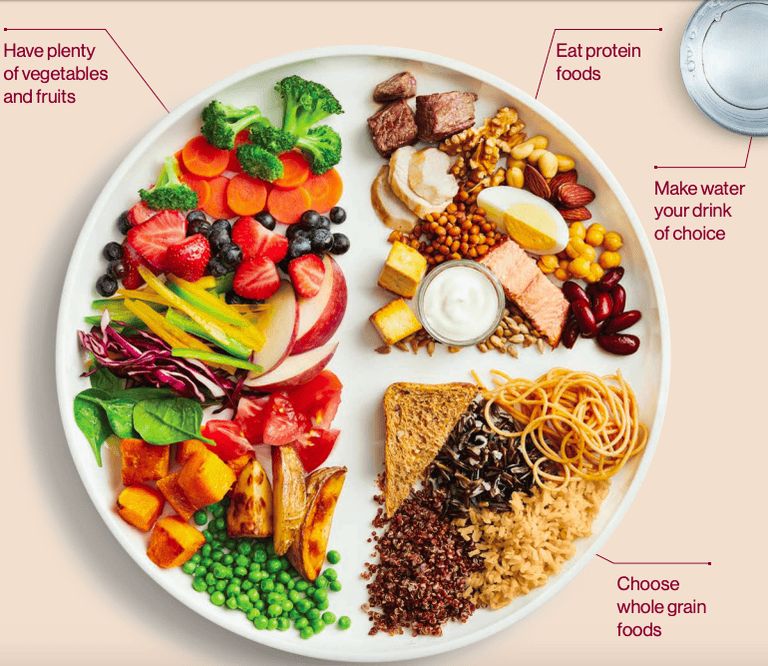
Have you ever been confused by opposing advice regarding nutrition or found it difficult to lose weight even when you try your best? This is when a dietitian can change everything. However, there is a question that frequently arises: do dietitians prescribe medicine? No, they cannot – but this does not take away from their indispensable role in supporting one’s health journey. So let us go further into the subject and see what else dietitians are capable of doing for us.
What role do dieticians play in healthcare?
Dieticians play an important role in providing nutritional guidance to improve health, manage conditions, and prevent disease. They create personalized meal plans, educate patients on healthy eating habits, and collaborate with other healthcare professionals. Their focus is on dietary changes rather than prescribing medication.
Dieticians examine the nutritional needs of patients and then prepare tailor-made meal plans based on particular medical situations such as obesity, diabetes, or heart conditions. They teach their clients how to select better diets as well as comprehend package information so that they can make informed choices when buying foods.
By working alongside other caregivers, they fit nutrition into wider treatment plans thus ensuring a comprehensive approach towards health that fosters a cure and prevents future ailments through sustainable lifestyle transformations.
Can dieticians work with other healthcare providers?
Yes, dieticians often collaborate with doctors, nurses, and therapists to provide comprehensive care. They contribute expertise on nutrition to support treatment plans, ensuring that dietary recommendations complement medical interventions for optimal health outcomes.
In order to achieve coordinated patient management dietician usually partner with physicians nurses counselors among others in the field during delivery of medical services. This helps ensure proper nutritional guidance complements medical treatments hence supporting overall goals of good health.
For instance, it has been found out by dietitians that specific changes in meals may increase the efficiency of medicines that have been prescribed while at the same time helping control some symptoms associated with different illnesses.
This way, dietary adjusts can be designed through collaborative process, where RD may participate in formulation and execution of primary care plan addressing both immediate illness issues along with maintaining wellness and preventing disease.

How do dieticians help manage chronic conditions?
Dieticians help manage chronic conditions like diabetes and heart disease by creating tailored nutrition plans. They focus on dietary adjustments to control symptoms and improve health, reducing the need for medication and promoting long-term wellness.
Dietitians are very important in the management of chronic diseases who create specific food plans. Such plans will take into account blood sugar levels regulation through balanced carbohydrate intake if one is diabetic or reducing cholesterol and blood pressure for people with heart diseases.
These customized plans emphasize whole foods, appropriate portion sizes, and nutrient-dense meals. As a result, patients are well educated about continuous dietary changes that can be adopted so as to alleviate symptoms, maintain less reliance on drugs, and improve life quality hence leading to an overarching aim of having good health in the future.
What qualifications do dieticians have?
Dieticians hold a degree in nutrition or dietetics and are often certified or registered. They undergo extensive training in medical nutrition therapy, food science, and counseling, equipping them to provide evidence-based dietary advice.
Dieticians are highly educated practitioners with at least bachelor’s degrees mainly in nutrition and dietetics, followed by many with a master’s degree or various kinds of specialized training usually in clinical nutrition, which makes one registered. A registered dietitian must fulfill accredited dietetic internship requirements, pass a national examination, and complete continuing education requirements.
This intensive training equips dieticians with knowledge of human nutrition, medical nutrition therapy, and dietary counseling. Their expertise allows them to provide science-based nutrition advice that is specifically aimed at achieving health needs and goals.

Are dieticians allowed to prescribe supplements?
Dieticians can recommend supplements to address nutrient deficiencies or support health goals. However, they do not prescribe them in the same way doctors prescribe medication. Recommendations are based on individual assessments and current health needs.
Dietitians may recommend taking dietary supplements such as vitamins and minerals to address specific nutritional gaps or meet certain health goals. Typically, these suggestions are based on comprehensive dietary reviews and personalized medical appraisals.
Nevertheless, dietitians cannot administer any prescription medication; instead, they assist clients in making safe and effective use of supplements without exceeding their nutritional requirements so that they can complement overall wellness programs rather than interfere with other drugs that a person might be using.
What is the difference between a dietician and a nutritionist?
Dieticians are licensed professionals with formal education and certification, while nutritionist qualifications can vary widely. Dieticians can work in clinical settings and provide medical nutrition therapy, whereas nutritionists may focus on general wellness and dietary advice.
The educational background and job description distinguish between dieticians and nutritionists. For instance, all registered dieticians must complete specific courses before joining the profession such as those related to food service systems management, therapeutic diets, etc. They also possess clinical competencies including skills in how to provide medical nutritional therapies in clinics.
Conversely, credentials for nutritionists may vary depending on the level of certifications a person has attained through education which is less strict than that of their counterparts. They may not however be authorized by law to avail medicinal treatment options but they can give you healthful eating suggestions as well.
Wrapping Up!
The power of food is an extremely dynamic tool, one that dietitians may not prescribe medication with. They are health partners who help people become healthy and happy from a nutrition standpoint. Therefore, the next time you need someone to guide and support your wellness journey, think about seeing a registered dietitian. They will provide you with the information and resources needed for making good eating decisions which will improve your overall health step by step through tasty meals!
